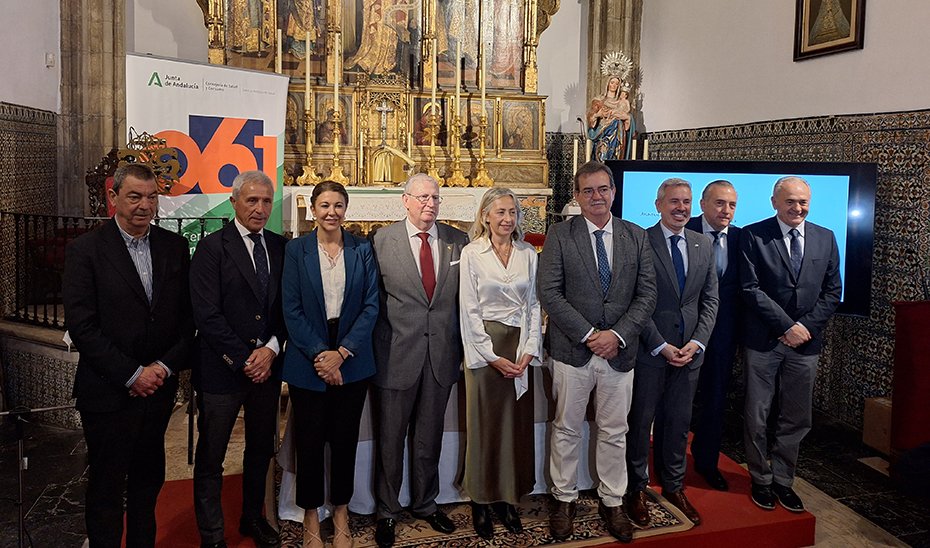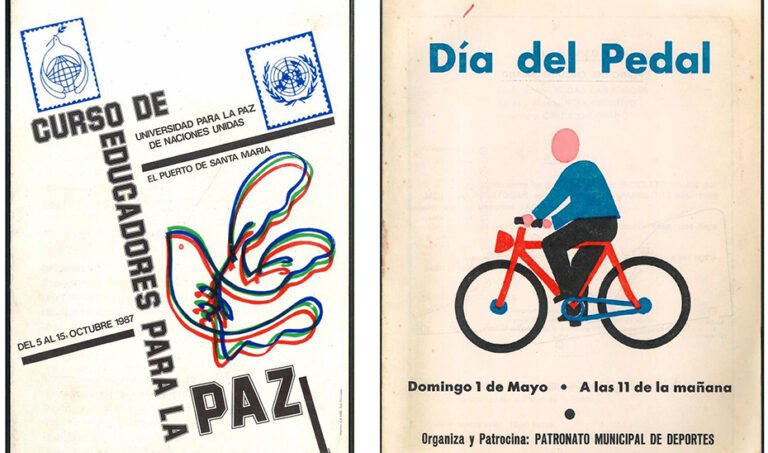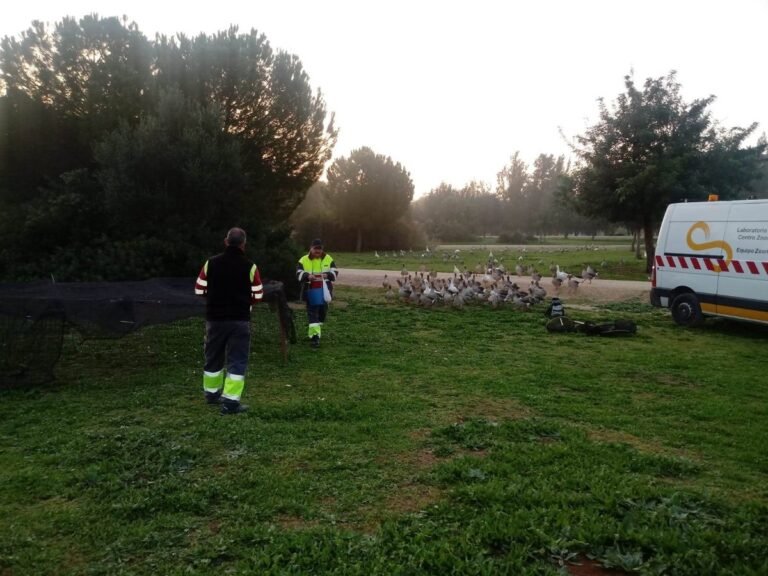
The Emergency Health Center 061, belonging to the Andalusian Health Service of the Ministry of Health and Consumption, ‘cardioprotects’ the processional routes of Holy Week in Seville for another year, with the collaboration of the City Council of Seville and the General Council of Brotherhoods and Confraternities of Seville. This initiative was presented by the Minister of Health and Consumption, Rocío Hernández, at an event held at the headquarters of the General Council of Brotherhoods and Confraternities of the Sevillian capital.
The minister was accompanied by Manuel Molina, Health and Consumption delegate, Francisco Vélez, president of the General Council of Brotherhoods and Confraternities of Seville, Silvia Pozo, Health and Animal Protection delegate of the City of Seville, and José María Villadiego, director of the Emergency Health Center 061 in Seville, among other authorities.
The brotherhoods that parade through the city from the Friday of Sorrows to Easter Sunday will be equipped with semi-automatic defibrillators, located inside the floats, to be at their disposal, as well as for the thousands of people who gather around them during their procession. In addition, the implementation of own health services in the brotherhoods will make it possible for them to be the first responders in emergency situations until the arrival of resources from the public health system.
Thus, about 130 non-healthcare personnel from different brotherhoods have received training in basic CPR techniques over two days held in February and March. Hand in hand with 40 healthcare professionals who volunteered, the members of the brotherhoods have been trained on how to act and intervene in a critical situation while emergency services arrive.
The ‘Cardioprotected Holy Week’, which celebrates its tenth anniversary this year, has provided training in resuscitation techniques and defibrillator use to more than 20,000 people. This initiative, along with the deployment of volunteer healthcare personnel in the processions of all brotherhoods, has improved the quality of care and increased survival in all life-threatening situations.
In this edition, like the previous ones, a total of 40 defibrillators will be distributed among the 70 brotherhoods parading through the city, to which this year another 15 fixed defibrillators will be added, identified with the ‘Cardioprotected Zone’ label, which will be placed in establishments, kiosks, and churches located in high-traffic areas. For this purpose, the collaboration of the Real Betis Balompié and Sevilla F.C. foundations – whose presidents, Rafael Gordillo and Luis Castro, respectively, attended the presentation event at the headquarters of the General Council of Brotherhoods and Confraternities of Seville – the provincial group of the Red Cross, and Almas Industries has been sought.
The defibrillators have been used, over these ten years, to assist people who suffered a cardiac arrest during the processional route. In all cases, prior to the arrival of healthcare teams, the action of a first responder who applied basic resuscitation techniques and used the nearest available defibrillator was crucial in saving the lives of many of these individuals, who were later discharged from the hospital without sequelae.
Special healthcare device
The Emergency Health Center 061 will establish a special healthcare device during Palm Sunday, Maundy Thursday, and the Dawn, equipped with a mobile ICU from 061 with a doctor, nurse, and emergency technician, strategically located to intervene rapidly in case of a need, and a control room operator at the CECOP of the City Council to coordinate the usual health resources available in the public health system. During the Dawn, the special device will be complemented by a 061 logistics support vehicle, prepared for the care of multiple victims.
In addition, throughout Holy Week, two mobile advanced care teams (EMCAs) will be added, medical care will be strengthened at the fixed emergency care points of the health centers in the Ronda Histórica and Cachorro neighborhoods, and five more managers will be added to the emergency coordination center to handle calls. All these resources will be complemented by the usual ones from the Andalusian Health Service to attend to emergencies in the capital: four emergency healthcare teams, two advanced coordination teams, and one basic life support team, all from 061, in addition to six mobile units from the primary care emergency service (SUAP) and seven ambulances from the urgent transport network.
Actions in case of cardiac arrest
Each brotherhood has healthcare personnel and members trained by 061 to act immediately in case of witnessing a cardiac arrest in their procession, with the aim of reducing mortality and sequelae, prior to the arrival of emergency health teams. These teams will be the first responders, identifying life-threatening situations versus milder emergencies that, in the vast majority, will be resolved by themselves.
Proper care for a cardiac arrest involves the early application of a set of actions known as the ‘chain of survival’ which include, in this order, recognizing the situation and activating the emergency health system, immediately starting basic life support maneuvers, early electrical defibrillation, and the rapid implementation of advanced life support techniques.
In the event of a cardiac arrest, it is essential to start basic cardiopulmonary resuscitation maneuvers promptly while emergency services arrive. International recommendations indicate that one of the main strategies to reduce the mortality of patients who have suffered a cardiac arrest is to teach the general population the basic measures to apply to these patients while waiting for healthcare teams, which have shown to increase survival rates in these cases.
‘Cardioprotected Zones’
Andalusia currently has 1,172 ‘cardioprotected zones’, 129 of them in Seville. To facilitate a rapid intervention in such situations, the Ministry of Health launched an initiative in 2013 to promote basic life support training and the use of automated external defibrillators among Andalusian organizations, recognizing all institutions that met the requirements set out in the Order of June 4, 2013 (Boja 113/2013), as ‘Cardioprotected Zones’.
The Emergency Health Center 061 is responsible for managing and registering organizations that have this certification, confirming that these institutions have trained their professionals and have placed defibrillators in their facilities, in the appropriate number and locations, as established in the regulations to comply with Decree 22/2012 of February 14 regulating the use of semi-automatic defibrillators in public places outside the healthcare setting and the handling of the equipment by non-medical personnel.
The registry of defibrillators of the Ministry of Health and Consumption indicates that in the province of Seville, 1,658 automated external defibrillators (606 in the capital) have been registered, which, due to their characteristics and operation, can be managed by non-medical personnel. These automated external defibrillators (AEDs) are located in public institutions, recreational spaces, and places prone to large crowds, as well as in private companies, so that, in the event of a cardiac arrest, appropriate first aid can be provided while emergency services arrive.
Requirements for a ‘cardioprotected zone’
The certification of a ‘Cardioprotected Zone’ is granted to those institutions that request it and meet the established requirements. Among them, it is highlighted that the requesting institutions must have a specific number of semi-automatic external defibrillators in their facilities, operational and in an appropriate location, to allow that, at least 75% of users, can apply defibrillation within three minutes.
Likewise, it is also verified that a training plan for personnel is presented, offered by entities belonging to the Spanish Council of Cardiopulmonary Resuscitation, and that there is an adequate maintenance plan for the installed AEDs, in accordance with their technical specifications and manufacturers’ recommendations. It is also considered essential that the company or institution establish an internal activation protocol to deploy and use the AED while emergency health services are activated and on their way.





